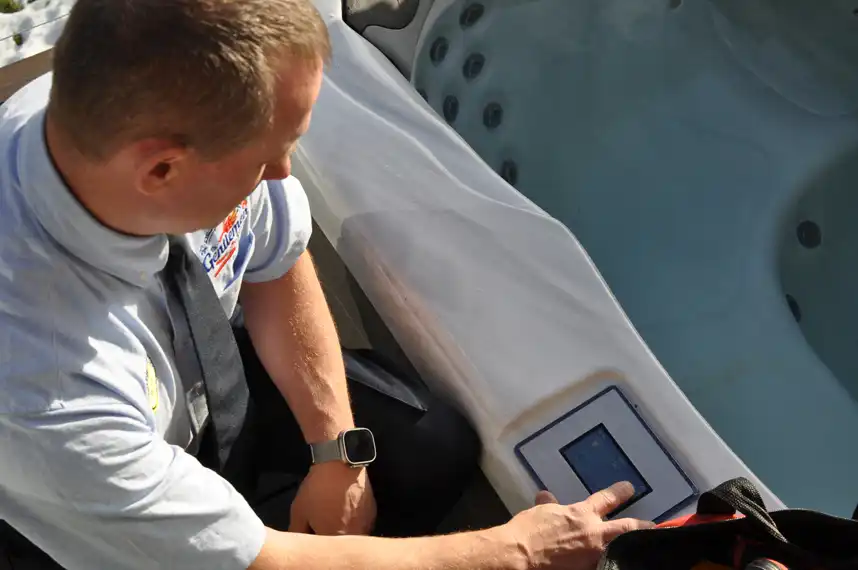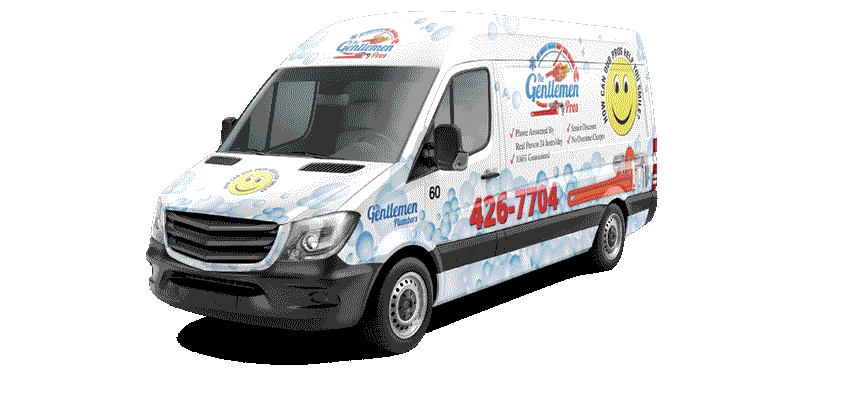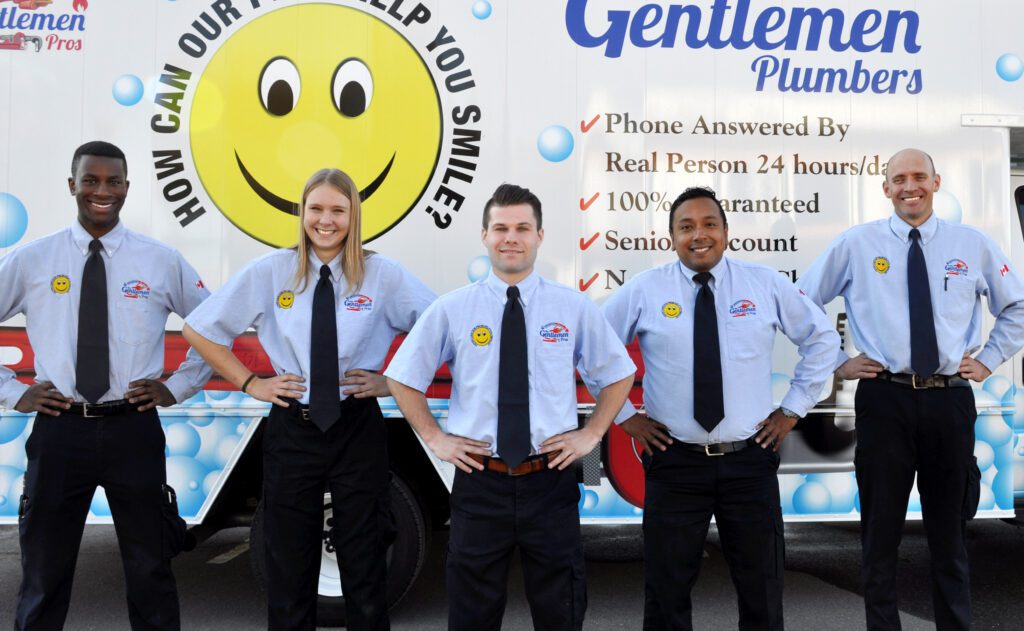Same Day Service
Since 2001
Call The Gentleman Pros Now!
(403) 879-1759

Wiring your pool, hot tub, or sauna is a serious business. Well, electricity is always serious business but improper wiring has more of a risk with these items due to the presence of water. Water and electricity are not a good combination.
“We called and were addressed immediately (rather than waiting for a call back). They arrived quickly and were polite and professional. Not only did they do the job but went above and beyond to make sure all avenues were addressed before leaving. I would give a higher review if it were a possibility.” Tayra H

You always need to be extra careful and use the proper equipment, parts, hardware, connections, and techniques when wiring something that will hold water or moisture. Mistakes can be deadly.
That‘s why it is important to have your new pool, hot tub, or sauna wired by one of our licensed electricians.
Our trustworthy electricians will assess your situation and offer straightforward solutions. The solutions will take into account the following:
We take pride in doing meticulous work and having happy clients. We work hard to keep the process as stress-free as possible for you. We are licensed electrical contractors with the City of Red Deer, well versed in everything to do with pool, hot tub, and sauna electrical, and we will:
If you’re ready to go ahead with your project, please reach out. Our friendly customer service reps would love to help.
To speak with us immediately call (403) 755-4914 or select the Chat With Us icon at the bottom of the page.
You can also fill out our online form and we will get back to you straight away.
We look forward to hearing from you.
For more answers to your questions, please check out Part 1 and Part 2.
Whether you need to pull permits or not will be determined by where you live. In Canada, you will most likely need an electrical permit and possibly a building or development permit. There could be other permit requirements as well.
The requirements will probably also require you to use a master electrician to apply for the permits and use a licensed electrician to do the work
Please check with a licensed electrician in your area or contact your local government (municipality, county, regional district, etc.) to find out the exact requirements for your region.
The number of outlets you will need will vary from model to model.
It will depend on the equipment used in your new pool, hot tub, or sauna and any extra features you get. For example, if you get a lighting or sound system package, you may need more outlets.
Please check your owner’s manual and consult with a licensed electrician for the number of outlets needed.
Full-sized hot tubs usually need 240 V and either a 40, 50, or 60 amp service on a dedicated circuit. A dedicated circuit has its own circuit breaker and only provides electricity to one outlet.
Please check your owner’s manual for the requirements specific to your hot tub.
A “plug and play” hot tub has a smaller pump and fewer jets than a standard hot tub. They require a smaller electrical service to run. They usually need 120 V service compared to the 240 V service a full-sized hot tub needs.
They don’t need to be hard-wired into your electrical system. They come with a factory-installed electrical cord that plugs into a 120 V outlet. Hence the name “plug and play”.
They can’t be plugged into any ole 120 V outlet, they need to be plugged into one on a dedicated circuit.
Some models have GFCI protection built right into the electrical cord.
They take longer to heat up and have a longer recovery time than full-sized hot tubs.
Both hot tubs and swimming pools use pumps. They serve similar purposes in both environments and are important in keeping the water clean and healthy.
Hot tubs have one or two pumps and they move the water through the filter (removing debris) and the heater (heating the water) and they power the jets.
Pools usually have one pump, though they can have more depending on the features. For example, a pool that comes with a hot tub or a waterfall feature may need additional pumps.
In a pool, the pumps keep the water moving and move the water through the pool’s filter and heater. It is important to keep the water circulating because moving water helps keep the pool chemicals mixed. Plus, algae and bacteria can grow in stagnant water.
The voltage and amperage needs of your swimming pool depend on the type of swimming pool, its equipment, and its features.
Please consult the owner’s manual for the specific electrical needs of your pool.
Also called a salt chlorinator, a saltwater pool uses it to convert salt into chlorine.
The generator uses electrolysis to electrically charge the salt water. This splits the salt molecules and creates chlorine.
A manual disconnect is a safety switch on its own or in a small breaker box that when engaged immediately stops the flow of electricity to the item it is powering.
Please consult with a journeyperson electrician to see if a manual disconnect is a requirement in your jurisdiction for your new sauna, hot tub, or pool in your jurisdiction.



